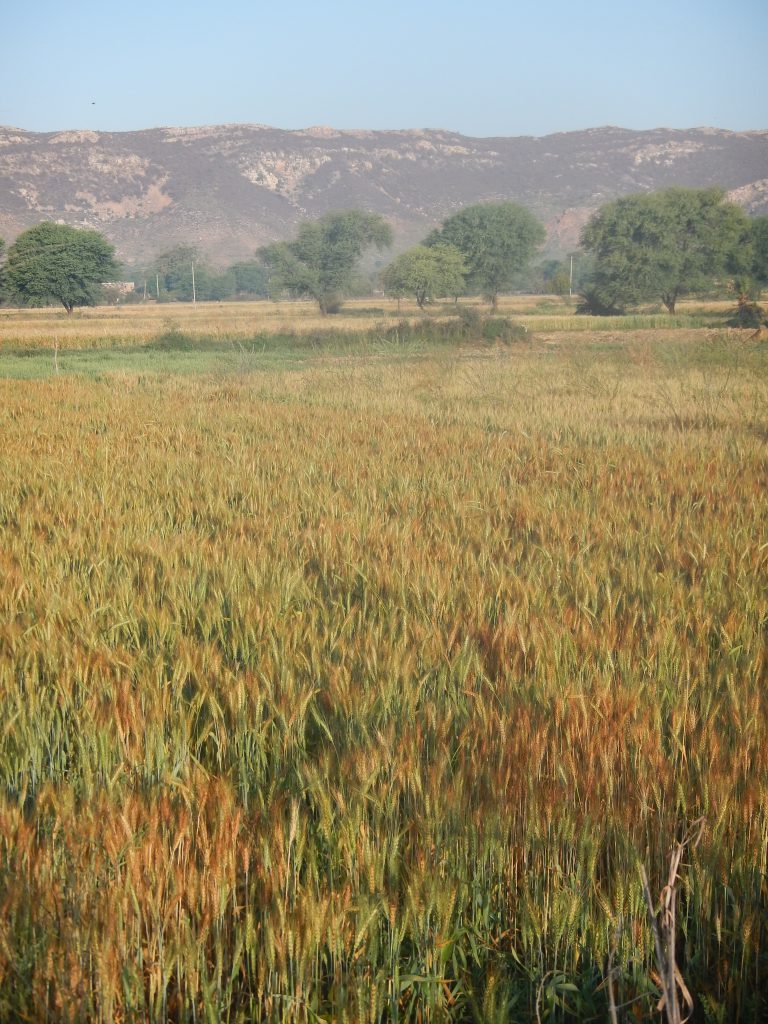
desert into productive land in north Rajasthan
The human species is wholly interdependent with the ecosystems with which we co-evolved, at scales from the global (climate) to the regional (climatic) and local (soil, other species).
From the workings of urban settlements to agriculture, mining and forestry, manufacture and retail, waste management and recreational, and the supply of food and water, our activities are at their most fundamental about accessing natural systems. This happens in terms of appropriating stocks and flows of matter, energy and biota, reformulating them into useful products, and disposing of waste, as well as being spiritually and otherwise enriched by them in less consumptive ways.
As a species, we have been technologically inventive – building major dams and diverting water at sub-continental scale, mining ‘fossil sunlight’ stored in sequestered carbon deposits, creating intercontinental food supply chains, and so on – in appropriating much of the productivity of nature. These innovations ultimately serve only to extend our reach, over both space and time, to our unbreakable connection with natural resources.
We have also invented market economics to transact resource exchanges across society. Regrettably, most aspects of natural capital are external to the limited vision of contemporary capitalism, driving narrow resource exploitation models that omit important facets and functions of conjoined natural and human worlds.
‘Socio-ecological systems’ address the close interconnections between natural resources and human activities. ‘Ecosystem services’, defined by the UN Millennium Ecosystem Assessment as “…the benefits people obtain from ecosystems”, circumscribe an integrated framework of qualitatively diverse benefit flows from ecosystems to people. They thereby enable systemic analysis of how we and our activities interact with ecosystem assets and processes, and thereby with each other, both in terms of our dependence upon them but also our negative and positive impacts. Many ecosystem services have formerly been unaccounted for in decision-making and resource use, and the ecosystems that provide them have as often consequently been eroded. More recently, we have learned from such authoritative studies as the UN Millennium Ecosystem Assessment, The Economics of Ecosystems and Biodiversity (TEEB) and the UK National Ecosystem Assessment how feedback from the increasingly populated human world is systematically degrading natural systems across a range of scales and, with them, their capacity to support human wellbeing into the future.
There are many ‘bad news’ stories of collapsing ecosystems and dependent human livelihoods, often inequitably across societal sectors. However, there are also exciting exemplars of ‘regenerative socio-ecological systems’, where people have collaborated and innovated to restore the vitality and functioning of the ecosystems providing them with socio-economic opportunity. From India to China, Africa to Europe, landscape-scale regeneration of socio-ecological systems has improved prospects not merely for nature but for people’s wellbeing. Aspects of this are also evident in progressive urban design and water management.
The imperative is for development of clear understanding of how ‘regenerative socio-ecological systems’ function, the principles underpinning them, how successes can be replicated, and how lessons can be translated and accelerated across mainstream societal practices.
